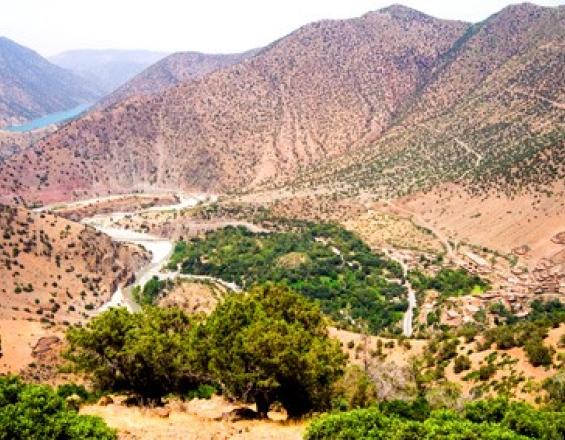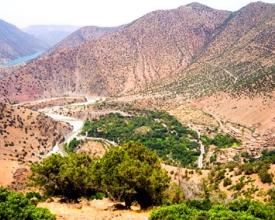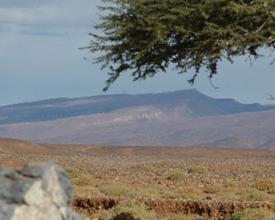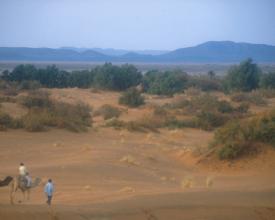Adaptation to Climate Change in Morocco by Protecting Genetic Resources and Retaining their Fair Use
Solución instantánea

Morocco shows a great diversity of ecosystems, species and genetic resources
Michael Gajo, GIZ
Many ecosystem services in Morocco are being over-utilised and increasingly threatened by the impacts of climate change. The solution applied includes (a) the development of the legal and institutional framework in support of the Moroccan Government, (b) awareness raising,(c) incorporatiion of ecosystem services and climate change adaptation into regional and municipal development plans, (d) improved environmental monitoring, (e) assistance in making use of Morocco’s biological resources.
Last update: 17 Apr 2018
6394 Views
Impacts
The Government of Morocco is supported by a GIZ project that aims to assist state institutions in order to introduce methods and instruments for environmental protection and the sustainable and efficient use of ecosystem services such as natural products, genetic resources, and water purification, water regulation and recharge.
Environmental impacts: Ecosystem services and climate change adaptation are incorporated into regional and municipal development plans. These are currently implemented, yielding good results. The regional monitoring and advisory system for climate change adaptation and biodiversity management was improved and expanded.
Social Impacts: Employment opportunities were created.
Economic Impacts: The economic potential of ecosystem services is better tapped. Sustainability standards were developed e.g for ecotourism or for the argan forest and its valuable products (e.g. Argan oil). Development partnerships were established between producers and commercial enterprises.
Political Impacts: The programme has significantly improved national and regional environmental governance. A legal and institutional framework for 'Access and Benefit Sharing' (ABS), based on the Nagoya Protocol, was created. The collection and provision of climate and environmental data were standardized. A particular focus is on cross-sectoral coordination and cooperation.


